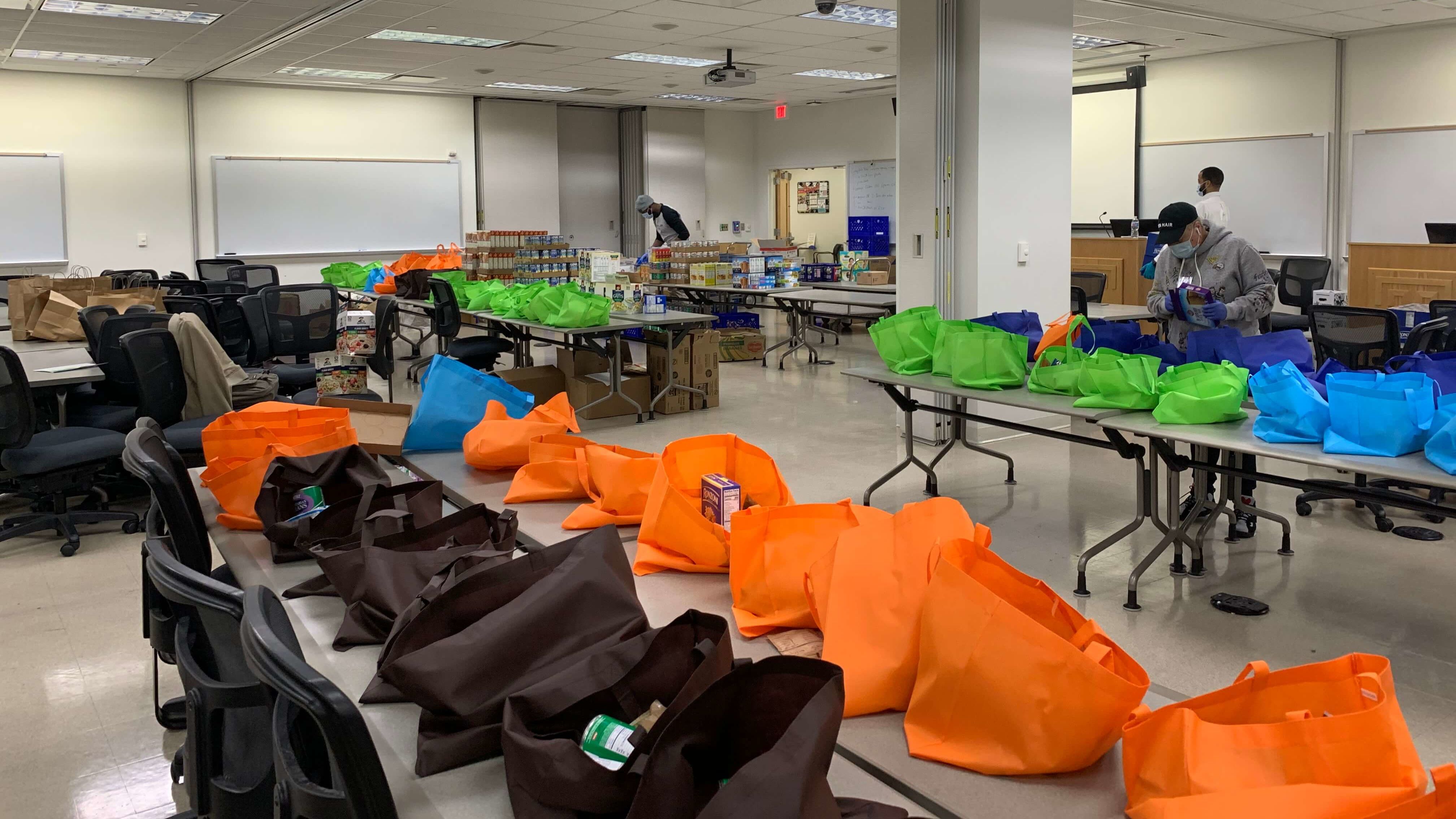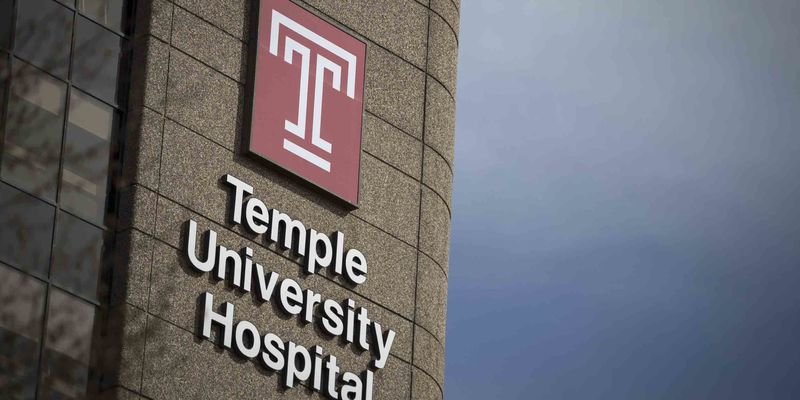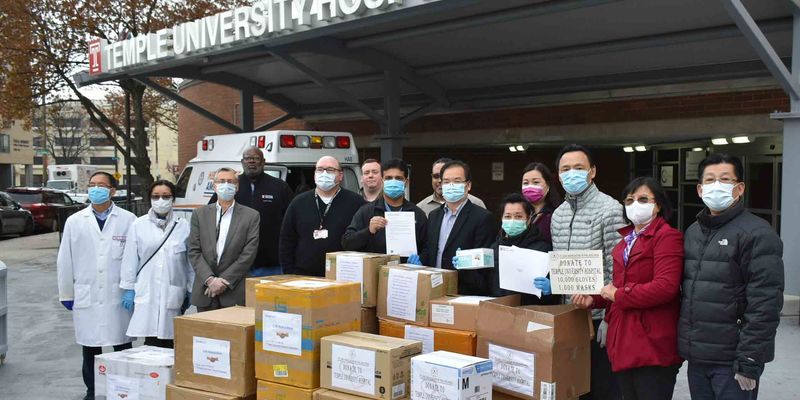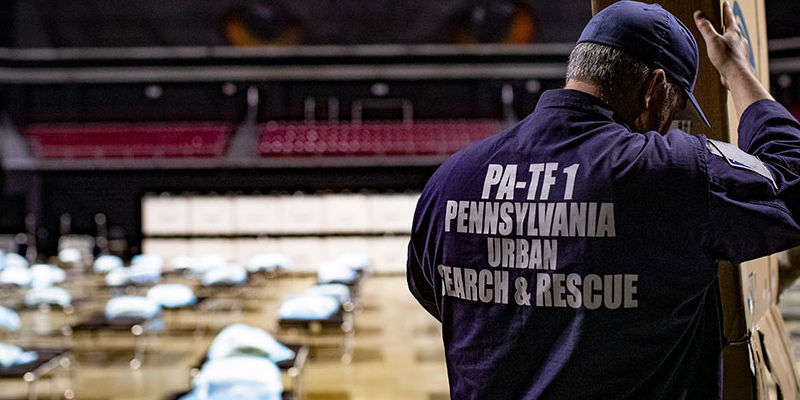The Center for Urban Bioethics delivers food and other essentials to people at risk
Katz School of Medicine’s Kathleen Reeves and her team give vital assistance to some of the most vulnerable members of the community.

As Temple’s community grapples with the coronavirus, faculty and staff at the Center for Urban Bioethics at the Lewis Katz School of Medicine have stepped up to help, organizing food and pharmacy deliveries for people at risk, putting patients in touch with their families and providing services to keep communities informed.
The greatest need is for food
Early in the crisis, Kathleen Reeves, the Center’s director and senior associate dean, Health Equity, Diversity and Inclusion at the Katz School of Medicine, began working with the medical school’s community partners to find out what issues local residents might face. “One of the biggest issues was food security,” Reeves said.
A 2018 report by Hunger Free America found that one in five Philadelphians lived in households classified as “food insecure.” Because many of them live in North Philadelphia, Reeves said, she and her colleagues quickly realized food would be an issue.
Reeves and her staff work with community partners and people in Temple’s immediate geographic area, identifying and serving those in need.
“We get referrals from our community partners,” Reeves said, “and referrals from our physicians when they’re seeing patients either in the hospital or on their telemedicine patient visits.”
Staff at the Center put together bags of food—each containing enough to feed one adult for a week—and Temple outreach workers deliver as many bags to each home as the residents need. Right now, they are delivering 400 bags a week.
“Our biggest limitation by far has been food procurement,” Reeves said. The Center has struggled to find a distributor. Her staff has been working with a grocery store in North Philadelphia. But keeping up a steady supply has been difficult because the store’s own food shipments are uncertain due to the pandemic. Nevertheless, the Center remains optimistic.
“We’re spending about $10,000 a week on food … if we can find the food,” Reeves said.
Two weeks ago, the Katz School of Medicine launched the Community Emergency Fund in support of the Center’s efforts. It’s one of many ways Temple has found to help its neighbors.
Nearly 70 of the 200 families the Center delivers to were identified by Temple physicians who had been screening people for food insecurity before the pandemic. Others are selected by community partners and the two kindergarten through eighth grade schools near Temple Health’s campus that the Center had already been providing services to, as well as through Temple’s Farms to Families program.
Now, whenever a physician identifies a patient in need, they simply email Reeves and her team directly. If the patient is in the Center’s catchment area or that of a partner organization, they are added to the system and receive food deliveries from the Center right away. If the patient lives outside the area, a group led by Nicolle Strand, assistant director for research at the Center, as well as an assistant professor at the Katz School, assembles a list of food resources and calls the patient to let them know what’s available.
Strand is also working with pharmacies in the catchment area to get medications delivered, so those who are vulnerable don’t have to leave their homes to fill prescriptions.
Cell phones bring people together
Alongside the deliveries, the Center has introduced a program to give patients and high-risk individuals cell phones. At the beginning of the crisis, Reeves purchased a few hundred fully-paid phones, with the idea that patients who didn’t have phones at home would need a way to communicate with doctors about their test results.
Since then, the role of the phones has expanded: Each one now displays a sticker with the number for a social services hotline that Temple manages.
The Center also distributes phones to some hospitalized patients, keeping them in touch with their loved ones at a time when isolation and social distancing makes hearing a familiar voice a crucial source of comfort.
A source of essential information
Sharing information is central to the Center’s community outreach program as well. Twice a week, Reeves and her colleagues organize a group conference call with community leaders, including pastors and block captains. “We tell them what’s happening and how the hospital’s evolving to meet their needs, and what they can expect when they come in. How we’re doing our testing, where they can get testing,” she said.
The call is a chance to share information, answer questions and dispel myths, which the Center also does on Facebook and Twitter.
“It’s a really good opportunity for Temple physicians and Temple leadership,” said Strand, “to connect directly with people that community members are more likely to go to and to trust.”
The Center is doing everything it can to help as many people as possible. Donations are always welcome, Reeves said.
Donate to the Community Emergency Fund and other Temple programs.
—Edirin Oputu


